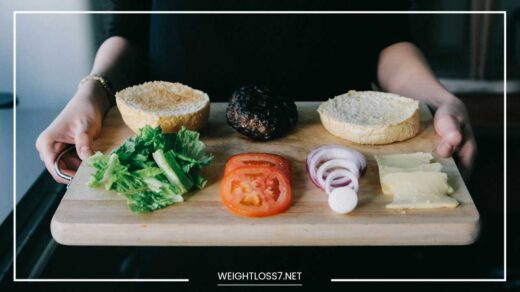Importance of Nutrition When Exercising

Nutrition
Fueling Your Fitness Journey: The Importance of Nutrition When Exercising
Exercise is a powerful tool for transforming your physical and mental well-being. It strengthens your heart, improves mood, boosts energy levels, and helps manage weight.
But to truly unlock the full potential of your workouts and maximize the benefits of exercise, you need to prioritize what goes on your plate just as much as the exercises you perform.
Nutrition is the cornerstone of fitness. It’s the fuel that powers your body through workouts, aids in muscle recovery, and supports your overall health.
Just like a high-performance car needs premium gasoline to run smoothly, your body needs the right nutrients to perform at its best.
In this comprehensive guide, we’ll delve deep into the importance of nutrition when exercising. We’ll explore how food choices impact your performance, recovery, and fitness goals.
We’ll provide practical tips on what to eat before, during, and after your workouts, and explore the crucial role of macronutrients (carbs, protein, and healthy fats) in your fitness journey.
The Science Behind Nutrition and Exercise
Understanding the science behind the link between nutrition and exercise can help you make informed dietary choices to optimize your workouts. Here’s a closer look at the key physiological processes involved:
-
Energy Production: During exercise, your body primarily relies on carbohydrates for energy. When you consume carbohydrates, they are broken down into glucose, which enters your bloodstream and fuels your muscles. However, your body also stores carbohydrates as glycogen in your muscles and liver. When you exercise intensely, your body uses up these glycogen stores readily.
-
Muscle Breakdown and Repair: Exercise, especially strength training, creates microscopic tears in your muscle fibers. This breakdown is a necessary part of the muscle-building process. However, to repair and rebuild these damaged tissues, your body needs protein. Protein provides the amino acids your body uses to build and repair muscle, leading to stronger, more resilient muscles over time.
-
Hormonal Regulation: Proper nutrition plays a vital role in regulating hormones that influence your metabolism, energy levels, and recovery. For example, insulin helps your body store carbohydrates for energy, while glucagon helps release stored glucose when your blood sugar levels drop. Consuming a balanced diet ensures these hormones function optimally, supporting your fitness goals.
-
Immune Function: A balanced diet rich in fruits, vegetables, and whole grains provides your body with essential vitamins, minerals, and antioxidants. These nutrients strengthen your immune system, helping your body fight off infections and recover from workouts faster.
Optimizing Your Diet for Different Exercise Goals
The ideal dietary approach for exercise can vary depending on your specific fitness goals. Here are some tailored tips:
-
Weight Loss: If your goal is to lose weight, focus on creating a calorie deficit by consuming fewer calories than you burn. However, don’t skimp on essential nutrients. Include plenty of fruits, vegetables, and lean protein in your diet while limiting processed foods, sugary drinks, and unhealthy fats.
-
Muscle Building: Building muscle mass requires a calorie surplus, meaning you need to consume more calories than you burn. Increase your protein intake to around 1.2-1.6 grams per kilogram of body weight daily. Focus on complex carbohydrates for sustained energy and healthy fats for hormone regulation.
-
Improved Performance: If you’re looking to improve your performance in a specific sport or activity, consult a registered dietitian or sports nutritionist who can create a personalized plan for your needs. They can help you with pre-workout meals to optimize energy levels, intra-workout strategies to maintain performance during long sessions, and post-workout recovery plans to maximize muscle repair.
Beyond Macronutrients: The Importance of Micronutrients
While macronutrients like carbs, protein, and healthy fats form the foundation of a healthy diet for exercise, micronutrients like vitamins and minerals play a crucial role as well.
These essential nutrients are involved in various bodily functions, including:
- Energy Metabolism: Certain B vitamins like thiamine (vitamin B1) and riboflavin (vitamin B2) are crucial for converting food into energy.
- Muscle Function: Electrolytes like potassium and magnesium are essential for proper muscle function and nerve transmission.
- Bone Health: Calcium and vitamin D are vital for strong bones, which are essential for supporting your body during exercise.
- Antioxidant Defense: Vitamins A, C, and E act as antioxidants, protecting your cells from damage caused by free radicals produced during exercise.
Planning Your Meals and Snacks for Optimal Performance
Timing your meals and snacks strategically can significantly impact your workout performance and recovery. Here’s a breakdown of what to consider:
- Pre-Workout Meal (1-2 hours before exercise): Aim for a small, easily digestible meal or snack that provides sustained energy. Focus on complex carbohydrates like whole-wheat toast with banana slices or oatmeal with berries and nuts Include a moderate amount of protein to aid muscle repair. Examples include Greek yogurt with berries and granola, or a scrambled egg with whole-wheat toast and avocado.
-
During-Workout (For workouts exceeding 1 hour): Replenish electrolytes and maintain energy levels with a sports drink or a small energy bar containing simple carbohydrates. Aim for 30-60 grams of carbohydrates per hour.
-
Post-Workout Meal (Within 30-60 minutes after exercise): This is the critical window for muscle repair and glycogen resynthesis. Consume a meal rich in carbohydrates and protein to replenish glycogen stores and promote muscle growth. Aim for a 3:1 ratio of carbohydrates to protein. Examples include grilled chicken with brown rice and roasted vegetables, or a salmon fillet with quinoa and steamed broccoli.
Hydration: The Unsung Hero of Exercise Performance
Water is essential for every bodily function, and exercise is no exception. Proper hydration ensures optimal blood flow, regulates body temperature, and lubricates joints.
Dehydration can lead to fatigue, decreased performance, and muscle cramps. Here are some tips for staying hydrated:
- Drink plenty of water throughout the day, even when you don’t feel thirsty. Aim for 8-10 glasses per day, and adjust based on your activity level and climate.
- Consider consuming electrolyte-enhanced beverages during or after long workouts, especially in hot weather.
- Monitor your urine color. Pale yellow urine indicates good hydration, while dark yellow urine suggests dehydration.
Beyond the Plate: Lifestyle Factors Impacting Exercise Nutrition
A holistic approach to fitness goes beyond just diet and exercise. Here are some additional lifestyle factors that can impact your exercise nutrition and overall well-being:
- Sleep: Adequate sleep is crucial for muscle recovery and growth. Aim for 7-8 hours of quality sleep each night.
- Stress Management: Chronic stress can disrupt hormone levels and hinder recovery. Practice stress-management techniques like yoga, meditation, or deep breathing.
- Supplements: While a balanced diet should provide most essential nutrients, some individuals might benefit from specific supplements like creatine for muscle building or vitamin D for bone health. However, consult a doctor or registered dietitian before taking any supplements.
Building a Sustainable Approach to Exercise Nutrition
Making sustainable changes to your diet is key to long-term success in your fitness journey. Here are some tips:
- Focus on progress, not perfection: Don’t get discouraged by occasional slip-ups. Aim for gradual improvements to your diet over time.
- Make small changes: Start by incorporating small, healthy changes into your routine, such as swapping sugary drinks for water or adding a serving of vegetables to your meals.
- Cook more at home: Cooking at home allows you to control the ingredients and portion sizes of your meals.
- Find healthy alternatives: There are healthy alternatives for most of your favorite foods. Experiment with new recipes and find healthy options you enjoy.
- Don’t deprive yourself: Restrictive diets are often unsustainable. Allow yourself occasional treats in moderation.
Advanced Considerations for Exercise Nutrition: Tailoring Your Diet for Specific Needs
While the core principles of exercise nutrition apply to everyone, there are additional considerations for athletes and individuals with specific dietary needs. Here’s a deeper dive:
Nutrition for Athletes:
Athletes have even higher demands for energy and nutrients compared to recreational exercisers. Here are some key points to consider:
- Energy Needs: Athletes often require significantly more calories than the average person. The exact amount depends on factors like the type of sport, training intensity, and body composition. A registered dietitian or sports nutritionist can help determine your individual calorie needs.
- Carbohydrate Timing and Periodization: Athletes may benefit from strategic carbohydrate timing around workouts. For example, consuming easily digestible carbohydrates like sports drinks or gels during long endurance events can help maintain energy levels. Additionally, some athletes may benefit from carbohydrate periodization, which involves manipulating carbohydrate intake based on training phases.
- Protein Needs: Protein requirements for athletes are generally higher than for non-athletes. Aim for 1.2-2 grams of protein per kilogram of body weight daily, depending on the sport and training intensity.
Dietary Needs and Exercise:
If you have specific dietary needs, it’s crucial to tailor your exercise nutrition accordingly. Here are some examples:
-
Vegetarian and Vegan Athletes: Plant-based athletes can meet their protein needs through a variety of sources like legumes, tofu, tempeh, and quinoa. It’s also important to ensure adequate intake of iron, vitamin B12, and omega-3 fatty acids, which can be lower in plant-based diets. Consulting a registered dietitian familiar with vegetarian and vegan athletes can be highly beneficial.
-
People with Diabetes: Individuals with diabetes need to manage their blood sugar levels carefully before, during, and after exercise. It’s essential to consult with a doctor or registered dietitian to create a personalized exercise and nutrition plan that accounts for diabetes management.
-
Individuals with Food Allergies or Intolerances: If you have food allergies or intolerances, it’s important to choose exercise snacks and meals that are safe for you. There are many healthy alternatives available, so you don’t have to feel limited in your dietary choices.
Tools and Resources for Exercise Nutrition
There are various tools and resources available to help you with exercise nutrition:
-
Registered Dietitians (RDs) and Sports Nutritionists: These qualified professionals can create personalized nutrition plans tailored to your specific needs and goals.
-
Nutrition Apps and Websites: Many apps and websites offer meal planning tools, calorie trackers, and healthy recipe ideas for athletes and individuals with specific dietary needs.
-
Books and Online Resources: There are numerous books and websites dedicated to exercise nutrition, offering valuable information and guidance. However, be sure to choose reliable sources from qualified professionals.
Remember: When it comes to exercise nutrition, there’s no one-size-fits-all approach. Experiment, find what works best for you, and don’t hesitate to seek professional guidance from a registered dietitian or sports nutritionist for personalized advice.
By fueling your body with the right nutrients, you can optimize your workouts, accelerate your progress, and achieve your fitness goals in a healthy and sustainable way.
Final Word: Fueling Your Fitness Journey with Optimal Nutrition
By prioritizing proper nutrition alongside your exercise routine, you can unlock the full potential of your workouts and optimize your fitness journey. Remember, food is fuel.
The right choices will provide the energy you need to perform at your best, recover effectively, and achieve your fitness goals.
So, stock your kitchen with nutritious options, plan your meals and snacks, and fuel your body for a healthier, stronger you.

















